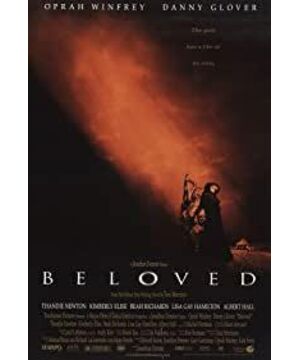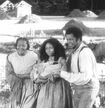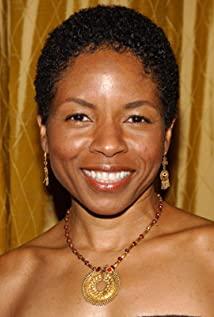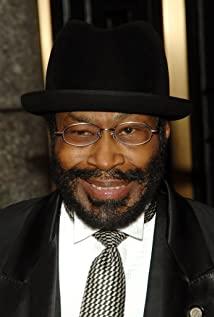Judging by the weaving of the film's text, The Favourite covers all the elements that works of this era are accustomed to: suffering, love, mystery, sex and violence.
It is undeniable that Toni Morrison's novel conception fully shows her sublime talent with southern attributes as a narrator. She uses a wet rainy season, mosaic art or jazz-like approach to the subject matter of the abolition movement in a deep and warm way.
When a message from Sweden suddenly came to Morrison in 1993, she also began her most lengthy and arduous suffering: Does her work truly match the accolades it has received? Although this voice from the opposite side of honor has not diminished the deep concern for this work at the end of the 20th century, it is also worth pondering.
Did "The Favourite" end up crowning the title because it took the vantage point of women's and black rights voices? Is its value hidden only behind ghostly and elusive expressions? Does this expression conceal the author's deliberate pleasing to the public readership?
In order to get closer to the real face of this text, after the film, I also read "The Favourite" as a novel, but what always fascinated me was its dark conception. On the technical level, such as the suspense setting, Morrison is still very rough and thin.
"The Favourite" is based on a real history, and in this history we can first explore the strange situation of black slaves. A slave girl named Margaret Garner once fled from Kentucky to Cincinnati, Ohio with her children. The slave owner brought people to hunt her down. She saw that the hope of a family's freedom was shattered, and she arrested her in despair. He picked up an ax from the table and cut her little daughter's throat.
Obviously, this historical episode is the blueprint of "The Favourite", so the action of black slave infanticide still returns to the will conveyed by the traditional theme: a kind of rebellion against captivity at the cost of life. But the level of the novel is obviously not so monotonous, and infanticide is only the beginning and far from the end.
After 18 years, the dead come back, when slavery has been abolished, that is, the darling has lost his life innocently, and in fact the sun has set the land of the free. So Sethe must pay the price for the "desperation" she created on the road of escape: the day and night punishment of her mother from Beloved.
Such a perspective is not necessarily precise, but it reflects the religious attitude of the story over political leanings. In fact, the significance of this novel is precisely that what it strives to describe is not just the experience of the race, but the common destiny of mankind. Of course, it is the exploration of human memory and destiny under the light of the author's own value. It is a history of the human mind, and at the end of the novel Morrison and the film also conceive a complete salvation for human beings.
When Kierkegaard wrote the Ode to Abraham with compassion and despair, people ignored Cain, the son of Adam who had committed a serious crime and was exiled. Only Penhoeffer put a little pen and ink on the first son of man in his exegesis, but unfortunately he did not finish it.
This is a question that Genesis fails to answer, and Morrison wonders: How do humans seek to survive in a state of life and death?
In the book of Genesis, the content about Cain is rare, the general idea is this: Cain killed his brother Abel, who was favored by Jehovah, so he was cursed by God to be a wanderer and could not return home, and his forehead was engraved with God Mark, no one can kill him. His descendants are recorded in the book of Genesis, but the history of man's manifestation is passed on through the Adam-Seth-Noah thread.
Cain disappeared in history. But apparently the criminal didn't get far. The portrayal of him in the book of Genesis is almost the whole idea of Jehovah for mankind. Like his parents Adam and Eve, he was expelled from his hometown. That is to say, the development line of the apparent history is actually fictional, and the real historical clue of human beings is the Adam-Cain line.
Of course, such an interpretation itself is based on a Genesis position, and there is no doubt that Morrison is a devout Christian.
From this standpoint, Sethe's infanticide should not be attributed to a purely political attempt, but in fact, she was motivated by a deep human despair and fear. We can't deny this. Sethe, who fled to the free "Sweet Home", was desperate when the slave owners chased after her. She didn't know that the heavenly freedom was about to come to the eternal land. She didn't have the courage to commit suicide. But killed the baby darling.
This is exactly the same with Cain. Cain's sacrifice was not as favored by God as Abel's, so he began to waver, and jealousy, depression -- and more fundamentally, out of questioning God -- made him choose the path of killing his brother.
But contrary to what he expected, the Son of Man that Jehovah truly cares for is himself, not his younger brother. God made him repeat the mistakes of Adam and Eve because this is exactly in line with God’s conception of mankind. Like his parents, he must pay the eternal price for a momentary wavering of faith in God.
And in The Favourite, Sethe endured a brutal and lengthy torture. These tortures come from Beloved, but more properly, they come from Sethe's heart, which is the real equivalent of a Cain-like mental torture hopelessly waiting for death.
We see Beloved's frantic and greedy demands for mother's love, and even seducing Paul D in the role of stepfather, these are the externalizations of Sethe's emotions. All tragedies were born from the moment when she questioned the Lord, from her excessive and urgent need for God's love. Sethe was always in guilt and patience. This is a description of Cain's mind after his exile. Of course, it is also in the theological sense, a portrayal of human beings after they were exiled.
At the end of the text, the disappearance of the darling still comes from religious power. This is "The Favourite"'s vision of the fate of mankind. Like the death of Jesus, the only way for mankind to be redeemed is to have pure and unblemished faith. Only by returning to a faithful belief in the majesty and authority of Jehovah can mankind cast out the shame and guilt of exile.
This is the human spiritual history conceived by Jehovah, which belongs to Cain's spiritual history and the spiritual history conveyed by The Beloved.
View more about Beloved reviews











